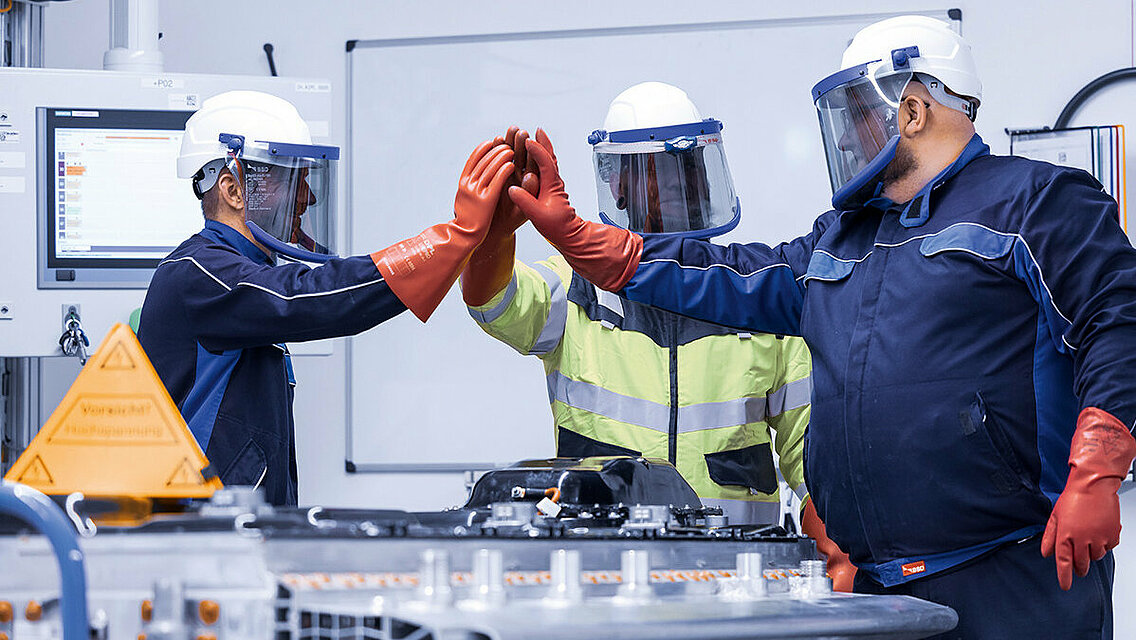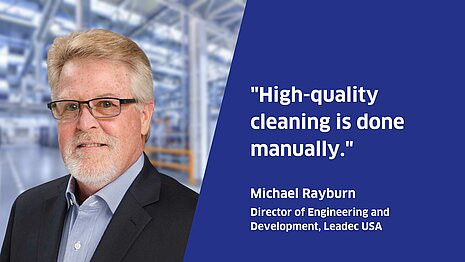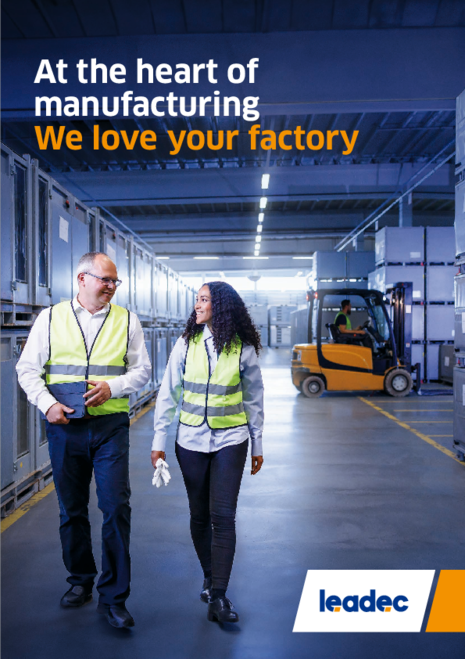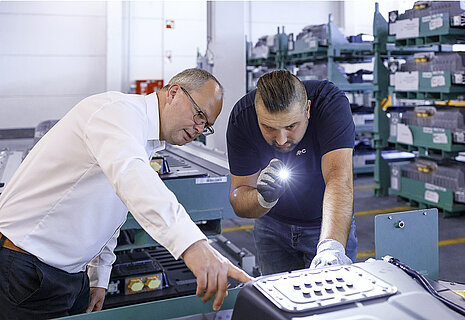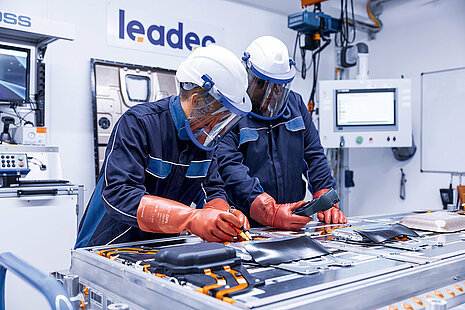Gigafactories – i.e., battery factories with a production capacity of a least 1 gigawatt hour (GWh) per year – are playing a key role in the transition to an electrified future. Because this is where batteries are produced en masse. A crucial factor is the speed with which these production facilities can be ramped up – and this is where the real potential for manufacturers to remain competitive lies.
“The success of a fast ramp-up in the battery industry is not just essential for a successful electrification process but also for market leadership,” explains Dr. Christoph Jaschinski, Senior Vice President Business Development at Leadec. “Those who manage to efficiently scale up their production capacities will become the leading vendors of the future.”
Challenges of a ramp-up
The production chain for batteries consists of 14 steps that follow one after the other. Although the production process is well-defined, there are a large number of complex and sensitive interdependencies between these steps that often impede the ramp-up. Christoph Jaschinski: “In many projects we find that the acceptance testing of production lines causes problems.”
This is due to a lack of standardization when it comes to the machines. For example, different suppliers use different programming languages, so the machines cannot communicate with one another. In some cases, imported equipment and machinery do not conform to established safety regulations and are therefore not approved.
“On the other hand, we also see inefficient logistics processes, high energy consumption and insufficient quality controls during the production steps.” Or there are delays in material procurement when critical raw materials like lithium, nickel and cobalt cannot be delivered on time. At the same time, the large number of process parameters that need to be checked and adjusted during the ramp-up makes it very difficult to develop efficient ramp-up strategies that go beyond the traditional trial and error approach. “Production managers cite very high scrap rates, where figures of more than 20% are not uncommon,” says Jaschinski.
Support in the factory
In recent years, Leadec has provided support for more than 20 ramp-up projects all over the world, focusing on core activities on the shop floor. “Among other things, we help our customers with the site logistics, i.e., where does which equipment have to be brought to and installed in the production hall. Subsequently, we look after the interconnection of the machines within the production line and train staff in their maintenance,” says Christoph Jaschinski. A key point that tends to be overlooked is the cleanliness in the subsequent battery factory. Construction site dust is a major problem for the sensitive machines. Dust particles can impair their functioning or at certain levels can even make the finished cells unusable.
“We have more than 60 years experience in technical cleaning and use these processes not just in paint shops but now in battery factories as well,” says Christoph Jaschinski, for whom one thing has become very apparent in recent years: “A speedy ramp-up is rarely something that can be managed in isolation. Successful projects are defined by technological innovations, strategic partnerships, and sustainable production methods.”


















